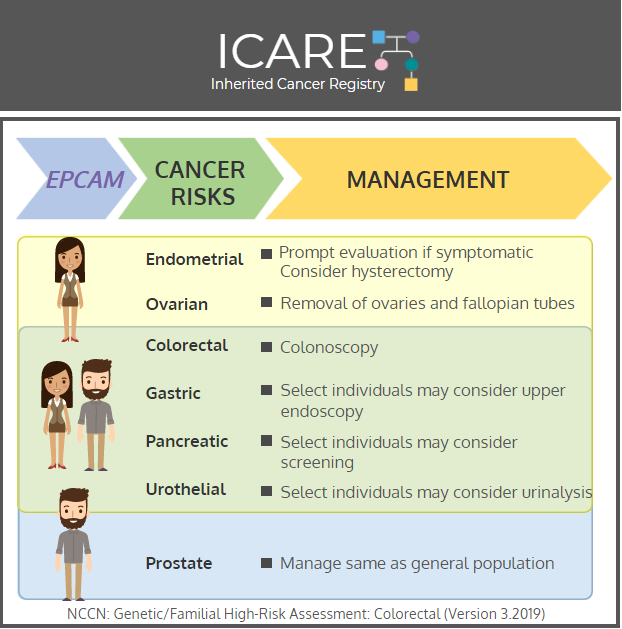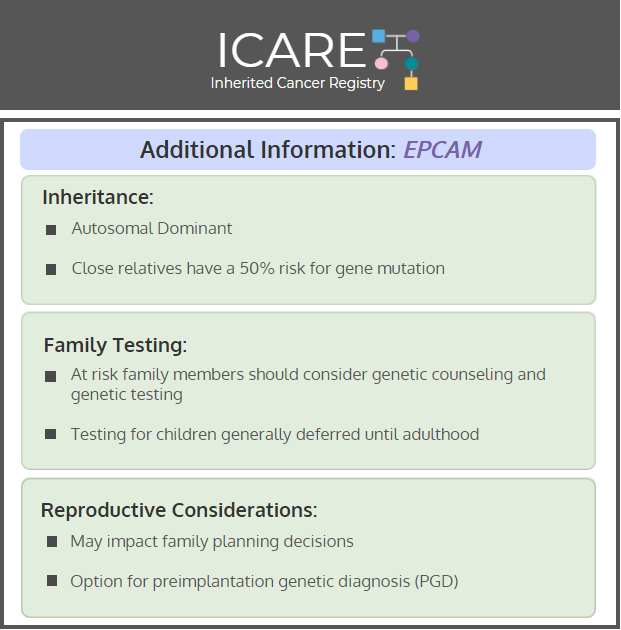
 Gene: EPCAM
Gene: EPCAM
Cancer Risks and Management (per NCCN version 3.2019):
Women:
Endometrial cancer risk: Elevated at 21%-57% – Consider risk-reducing hysterectomy.
Ovarian cancer risk: Elevated at 10%-38% – Recommend risk-reducing bilateral salpingo-oophorectomy (removal of ovaries and fallopian tubes).
Men and Women:
Colorectal cancer risk: Elevated at 43%-52% – Recommend colonoscopy every 1-2 years starting at age 20-25.
Gastric cancer risk: Elevated at 0.2%-16% – Consider upper endoscopy every 3-5 years beginning at age 40 for select EPCAM carriers (see NCCN for details).
Pancreatic cancer risk: Not well established – Consider MRI/MRCP or endoscopic ultrasound for EPCAM carriers with a family history of pancreatic cancer in first-degree relative.
Urothelial cancer risk: Elevated at 2%-18% – Consider urinalysis annually starting at age 30-35 for EPCAM carriers with a family history of urothelial cancer.
Men:
Prostate cancer risk: Elevated at 30%-32% – Manage same as general population.
Inheritance: Autosomal dominant, thus parents, full siblings, and children have a 50% risk for the gene mutation.
Family Testing: At-risk family members should consider genetic counseling and genetic testing. For adult-onset conditions, recommend waiting to perform genetic testing on minors are at least 18 years old.
Reproductive Considerations: Option for preimplantation genetic diagnosis (PGD) may be available to ensure future generations do not inherit the known gene mutation. PGD is a procedure available for certain gene mutations to screen the embryo prior to achievement of pregnancy.
Check out the full management guidelines by creating a FREE account at https://www.nccn.org/professionals/physician_gls/pdf/genetics_colon.pdf and https://www.nccn.org/professionals/physician_gls/pdf/genetics_bop.pdf
